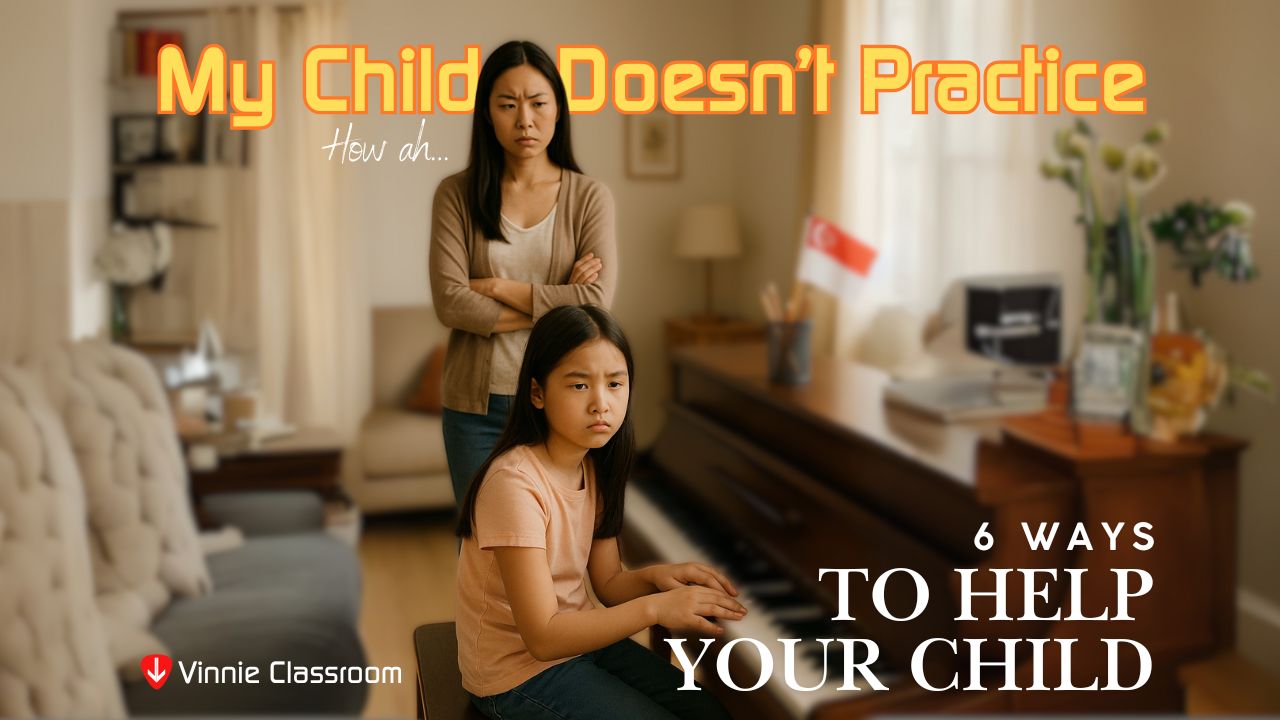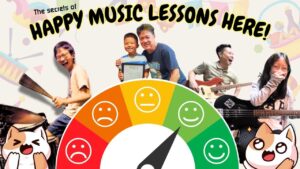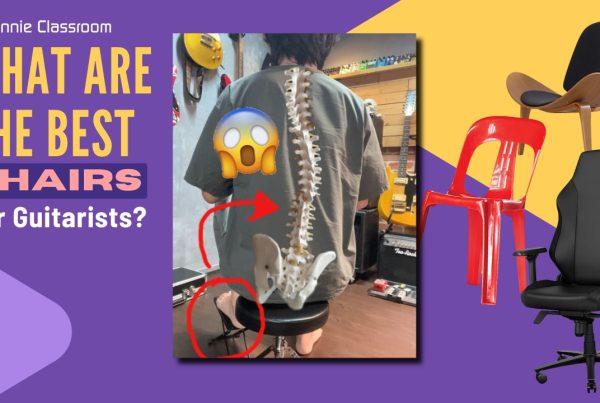My Child Doesn’t Practice the Piano – What Can I Do?

As a parent in Singapore, you want your child to enjoy music, their piano lessons, and practice their piano. But what happens when they avoid practice? Or worse, start to lose interest altogether? If you’ve found yourself asking, “Why won’t my child practice the piano?”, you’re not alone.
In this post, I’ll share some common reasons children avoid practicing and practical, parent-friendly tips! After reading this article, you should feel more confident about how to motivate child to practice piano. All without turning music into a battle!
Piano Practice is complicated!
Many people assume that if a child doesn’t practice the piano, it’s simply because they’re lazy. But that’s often not the case. The idea of “piano practice” actually involves many different aspects of learning and playing. Without proper guidance from a piano teacher, a child can easily feel lost when sitting at the instrument. Much like staring at a page of math homework they don’t understand. This creates a frustrating and discouraging experience.
To make things worse, both teachers and parents often refer to piano practice as “homework.” To most children, that word carries the same weight as a chore—something they have to do, not something they want to do.
As children grow older, their personal taste in music becomes more important. Asking them to practise a piece they don’t connect with can lead them to question the purpose of learning it at all.
And for children who are under constant pressure to perform well, piano practice can become a source of anxiety. The fear of making mistakes—especially if someone might hear them—can be overwhelming, even if it’s just a family member nearby.
What are some solutions to getting my child back on Piano Practice, then?
✅ 6 Piano Practice Tips for Kids!
-
Create a Consistent Piano Routine
Choose a specific time each day—after school, before dinner, etc.—and stick to it. Routine removes the decision-making stress. While we encourage piano students to practice on a daily basis, we understand that children have higher commitments in schools these days. If possible, set at least 3-4 days of piano practice in a week. -
Break It Into Small Goals
15 minutes with clear targets (“play this section hands together 3 times”) is more effective than a vague 30-minute session. Setting smaller and clearer goals will also allow children to get into the zone more easily. When they are focused on attaining that goal, they will lose track of time. Hence, achieving an effective piano practice session. -
Celebrate the Wins
Give praise not just for progress, but for effort. (“I saw how carefully you worked through that hard bit—well done!”). Recognizing their efforts rewards them psychologically, making them crave more. Of course, do it in a way where the celebration is for them and not for the parents. Doing it wrongly will create a situation where the child is reliant on the parent’s consistent approval. -
Include Fun Songs
Ask your teacher to include pop songs, movie themes, or familiar tunes. Motivation skyrockets when music students enjoy their piano lessons and the songs they are working on! -
Be Involved, Even If You’re Not Musical
Sit with them occasionally. Ask them to “teach you” a simple song. Teaching others boosts your own learning and memory through the Protégé Effect—a phenomenon where explaining concepts leads to deeper understanding and better recall than just reviewing. It also strengthens communication, builds confidence, and develops leadership skills. -
Use a Practice Chart or Rewards System (especially for young learners)
Visual trackers, sticker charts, or small rewards can turn practice into a game. You can create a practice chart with a whiteboard or drawn on Vanguard sheets! Go old school with the markers and decorate them with stickers!
The music school your child attends in Singapore matters
No, this is not about sending your child to a prestigious piano school for piano lessons in Singapore. A child’s behaviour is often shaped by the culture and environment of the school they attend. This is something many parents understand well—hence the high demand for well-regarded primary schools in Singapore. Naturally, parents want the best for their child, and that includes their music education. But what exactly should you look for in a music school?
- Are the piano teachers approachable, friendly, and honest?
- Is the child having a good time during their piano lessons?
- Do you think the school is designed with the safety of the child in mind?
- Is their music curriculum something you would agree?
- Was there a good amount of communication between the teacher and parents?
Of course, factors like location and pricing also matter. However, if the key elements mentioned above aren’t a good fit for your child, they may quickly lose interest and stop practicing the piano altogether.
If you feel that your child needs help with their piano practice, consider signing up for trial lessons with us. We might be able to provide the missing link for your child.








